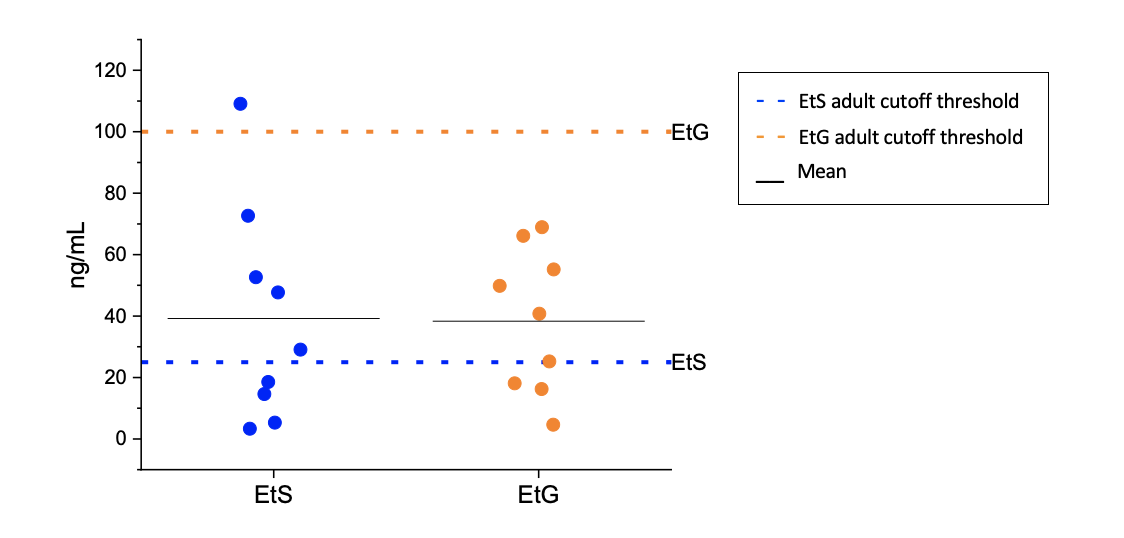Neonatology
Session: Neonatal General 9: Outcomes, Genetics. Ethics
381 - Accumulation of Urinary Ethanol Metabolites in Preterm Infants Receiving Ethanol Containing Medications
Monday, May 6, 2024
9:30 AM - 11:30 AM ET
Poster Number: 381
Publication Number: 381.3066
Publication Number: 381.3066

Arushi Mahajan (she/her/hers)
Medical Student
Case Western Reserve University School of Medicine
Cleveland, Ohio, United States
Presenting Author(s)
Background: Exposure to ethanol in pregnant women can negatively impact fetal brain development. Ethanol is used as an excipient in certain medications given to preterm infants during hospitalization in the Neonatal Intensive Care Unit (NICU). Infants and young children are unable to metabolize ethanol as efficiently as adults and thereby are at increased risk of ethanol induced damage and accumulation of metabolites. How preterm infants metabolize ethanol is unknown.
Objective: This project aims to determine if ethanol biomarkers in neonatal urine accumulate over time and if their levels vary by gestational age.
Design/Methods: Urine was collected from preterm infants in the UH Rainbow Babies and Children’s NICU. The infants enrolled in the study were born between 29 weeks and 0 days and 34 weeks and 6 days gestational age and received at least one of two ethanol-containing medications (ferrous sulfate or chlorothiazide). In this nonrandomized study, samples were collected from a total of 20 infants, of which 10 infants had a paired set of samples 3 days apart. Once all samples were collected, the ethanol biomarkers, ethanol gluconate (EtG) and ethanol sulfate (EtS) were measured by liquid chromatography tandem mass spectrometry. Linear regression analysis was used to assess the relationship between ethanol accumulation and postmenstrual age (gestational age plus chronological age).
Results: A total of 9 infants were included in the final analysis, 77% of which were male, with an average birthweight of 1526 +/- 640 g. The infants had a median post menstrual age of 35 weeks, with a range of 31 5/7 to 44 5/7 weeks. 44.4% of the neonates received ferrous sulfate (FeS) once daily, 44.4% received FeS twice daily, and 11.1% received FeS once daily and chlorothiazide (CTZ) twice daily. At the time of the final sample collection, the average level of EtS and EtG were 39.20 ng/mL and 38.32 ng/respectively. Neonates with lower postmenstrual age had greater accumulation of EtG (p = 0.004).
Conclusion(s): Ethanol may accumulate in the blood of preterm infants. Given the toxicity of ethanol exposure and the inadequate metabolism of ethanol in neonates, especially those at lower postmenstrual age, ethanol containing medications should be used with caution in the neonatal population.

.png)
.png)
